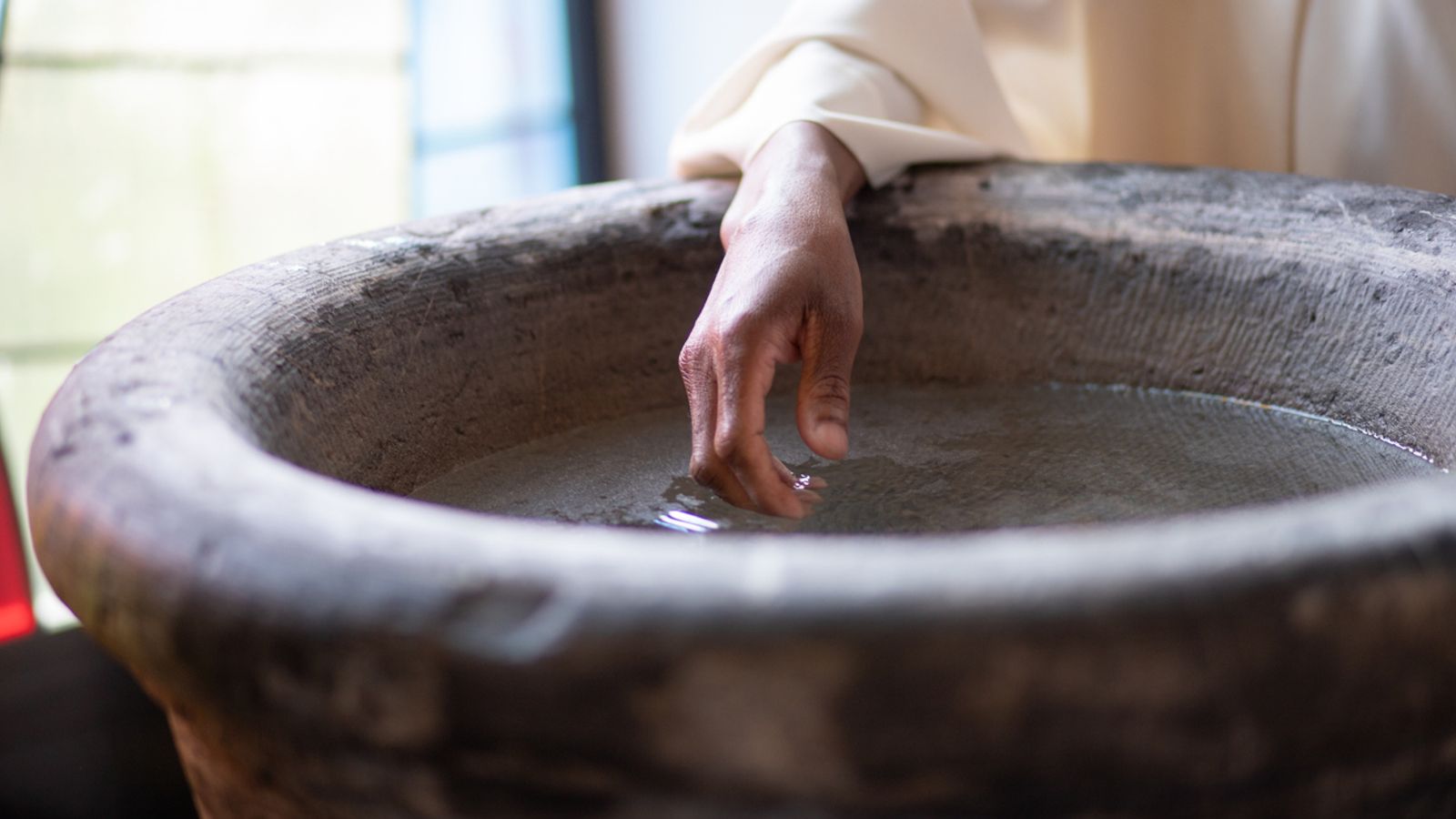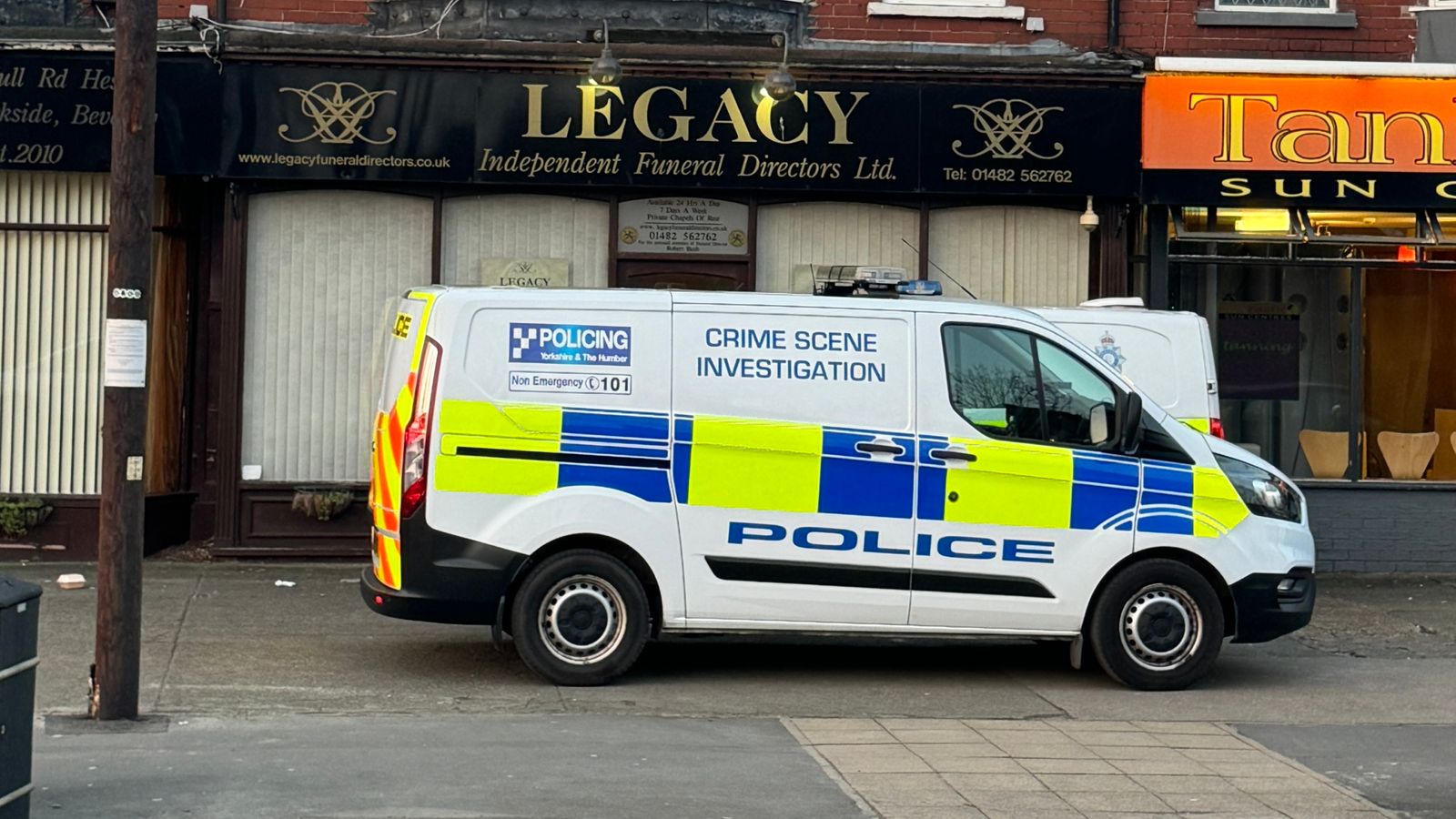A former Church of England priest has claimed groups of six or seven asylum seekers would be brought to his church for baptism as they appealed a rejection of a right to remain in the UK.
Reverend James Firth was the minister at St Cuthbert’s in Darlington between 2018 and 2020.
He has since left the Church of England and joined the Free Church of England.
Politics latest: Reform leader puts Sunak on notice after defection
Sky News Monday to Thursday at 7pm. Watch live on Sky channel 501, Freeview 233, Virgin 602, the Sky News website and app or YouTube.
His previous claims of a “conveyor belt” of asylum seekers being baptised by the church were described as “distant from reality” by his former bishop, Paul Butler.
Rev Firth was giving evidence to the Home Affairs Select Committee on the topic of asylum decision-making and conversion to Christianity.
The session was called following the Clapham chemical attack, where it emerged that suspect Abdul Ezedi had been granted asylum, which is understood to have happened in part thanks to a priest who vouched for his commitment to Christianity, following conversion.
Church of England should aim to raise £1bn to address historic links to slavery, group warns
Safeguarding ‘weaponised’ in Church of England as report claims standards ‘fall below secular groups’
Church of England admits same-sex couple blessing services unlikely before 2025
Mr Firth told the committee that when he joined St Cuthbert’s in 2018, there was a “surprising number” of baptisms going forward with asylum seekers.
He said it “was a large number of young male asylum seekers, almost in a cohort,” and that he began to look into it “further”.
“After those baptisms, week-in, week-out, significant groups of mainly Iranian and Syrian young male asylum seekers were being brought to me in sizeable cohorts,” he said.
The reverend added: “At a time six or seven people brought to me by people saying these people need baptism.”
Rev Frith said the people were brought to him by a “particular individual” who he believed had the right to remain in the UK having claimed asylum.
Read more:
Bishop defends churches helping asylum seekers
MPs warn Bibby Stockholm risks human rights breach
Migration system ‘not working’ lawyer claims
Bishop Butler, in a prior rebuttal, said: “A check of the parish records quickly reveals … a total of 15 people [13 adults, two infants] who may have been asylum seekers have been baptised over the past 10 years.
“Of these, seven were baptised by Mr Firth himself.”
He said Rev Firth should have reported it if he felt anything was “amiss”.
Rev Frith told the committee he “pushed the pause button” on the baptisms, and said he did not have access to the parish registers so could not comment on the figures provided by his former bishop.
He said that the vast majority – if not all – of those seeking baptism as asylum seekers were doing so having already failed their initial asylum claims.
The priest added that the church had gone on the offensive against him rather than dealing with the problem.
Rev Frith also claimed that he was asked by lawyers for people going through the asylum process to provide evidence at appeal tribunals – and sometimes was asked to “say more” on behalf of the appellant.
Representatives of the Church of England, Catholic Church and Baptist Church all also gave evidence to the committee, but all were unable to provide nationwide data on how many of those seeking baptism were asylum seekers.
Reverend Steve Tinning, of the Baptist Union of Great Britain, described the situation at a church in Weymouth, near the Bibby Stockholm barge which holds male asylum seekers.
👉 Listen above then tap here to follow Politics at Jack at Sam’s wherever you get your podcasts 👈
He said in total, around 40 people on the barge are going to churches, with 25 to 30 at the Weymouth Baptist establishment. Around seven have been baptised.
Speaking to the committee, he urged MPs to moderate their language, saying that comments made by politicians have done “damage” to the community in Weymouth, and says that people need to recognise the consequences of their actions.








